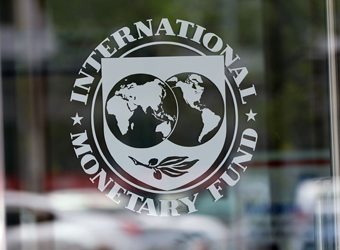The International Monetary Fund (IMF) has hailed on Wednesday Egypt’s economic reforms, which it said have curbed inflation levels, while calling for further reforms, including to energy subsidies.
The fund’s remarks came as it approved the second review of Egypt’s reform programme, disbursing the first part of the second tranche of a $12 billion loan facility, and bringing the total disbursement released to date to just over $6 billion.
The $2 billion tranche is part of a deal signed in November 2016 after the Egyptian government floated the Egyptian pound as part of sweeping economic reforms, including subsidy cuts and tax hikes, aimed at narrowing a gaping budget deficit.
The fund said that Egypt’s economy was showing “welcome signs of stabilization,” including a recovery in economic growth rates, easing in inflation rates and foreign currency reserves reaching the highest levels since 2011.
“The outlook is favorable, but will require sustained efforts to maintain prudent policies and advance structural reforms to support the authorities’ medium-term objective of inclusive growth and job creation,” said David Lipton, IMF first deputy managing director, in a statement released on Wednesday.
“By tightening monetary policy early in the year, the Central Bank of Egypt has managed to reverse high inflation, which was the main risk to macroeconomic stability,” the fund official added.
“The continuation of this disinflationary trend could open the door to a gradual easing of interest rates, but the CBE should remain vigilant and be prepared to tighten the monetary stance if demand pressures reemerge.”
“The primary surplus targets for 2017/18 and 2018/19 are achievable, but are subject to risks, including from higher oil prices. Therefore, continued reform of energy subsidies is critical for achieving the program’s fiscal objectives,” Lipton said.
“Over the medium term, the authorities need to implement tax policy reforms and modernize tax and customs administration to create fiscal space for much-needed investment in human capital and infrastructure.”
The fund board also lauded the central bank’s decision to introduce a fee on foreign investors to use a mechanism of profit repatriation, saying it could improve pound flexibility.
“Making further progress on moving away from product subsidies to better-targeted cash transfers would strengthen the social safety net,” the fund said.
The pound’s value has halved since the flotation, pushing inflation to above 30 percent and sending prices soaring. However, Egypt’s annual urban consumer price inflation fell to 26 percent in November from 30.8 percent in October.
The country’s GDP grew by 4.2 percent in the fiscal year 2016/2017, well above preliminary estimates.
Source: Ahram Online
